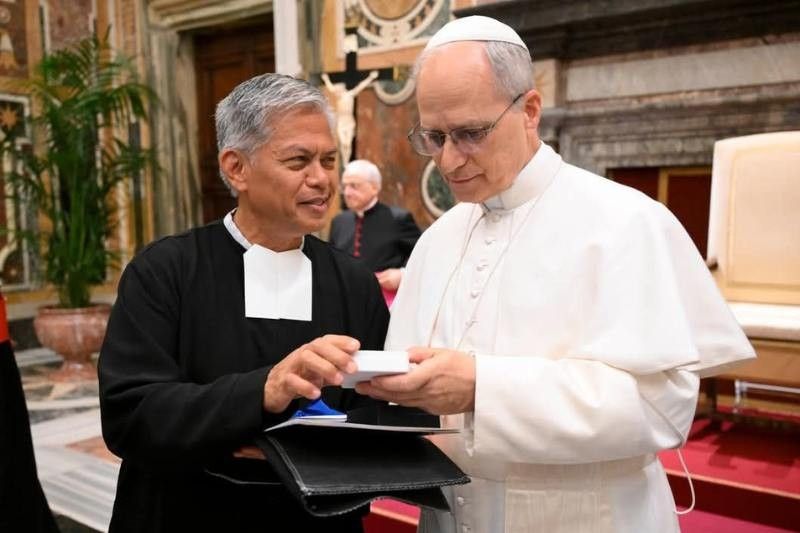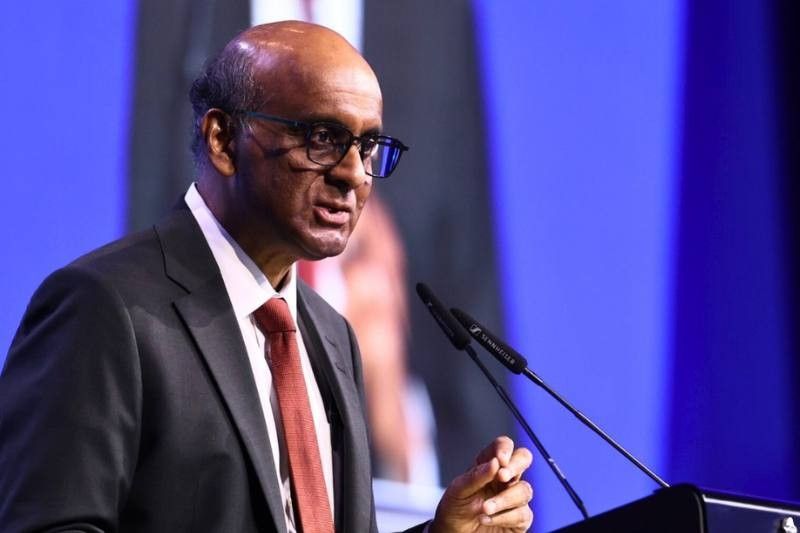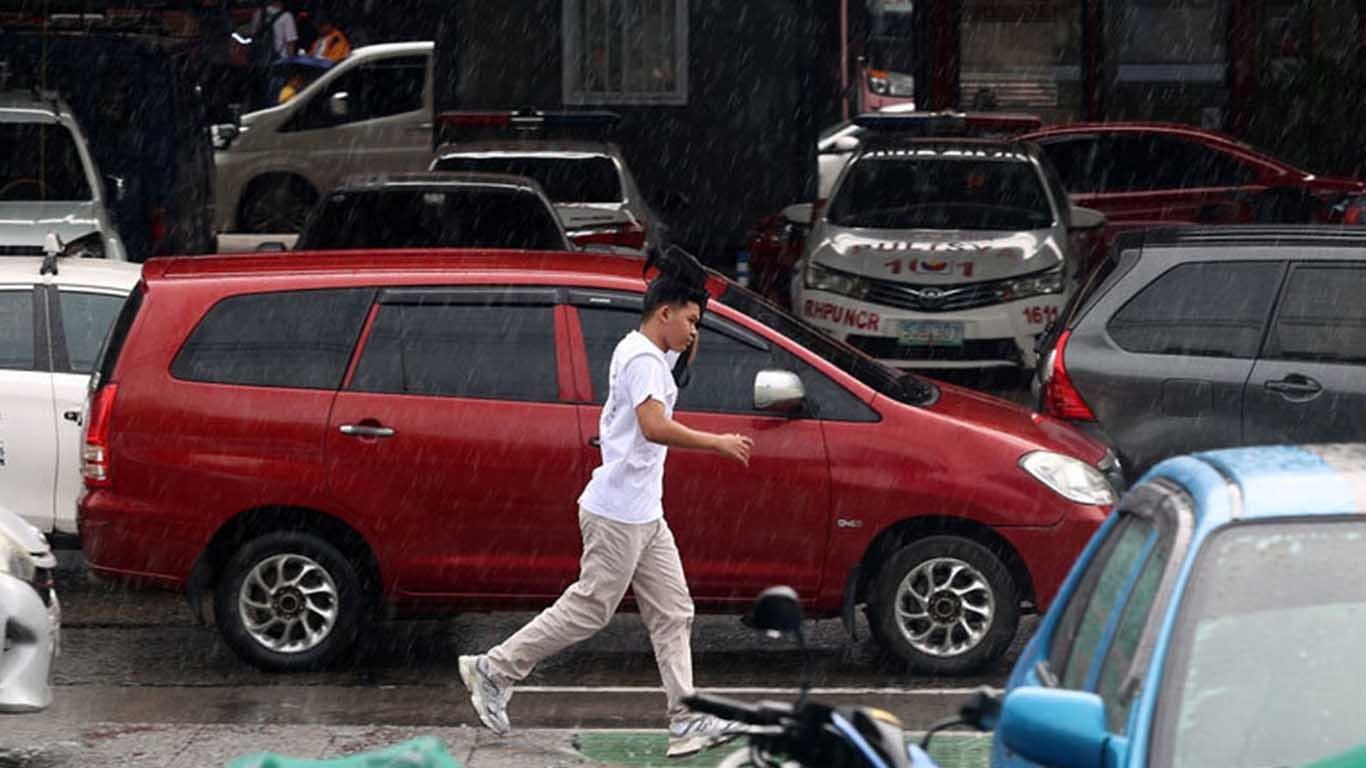
Upgrade to High-Speed Internet for only ₱1499/month!
Enjoy up to 100 Mbps fiber broadband, perfect for browsing, streaming, and gaming.
Visit Suniway.ph to learn
Jean Mangaluz - Philstar.com
June 24, 2025 | 6:15pm
MANILA, Philippines — Vice President Sara Duterte has formally responded to the Senate impeachment court’s summons, submitting an answer ad cautelam—a legal maneuver indicating that she is replying with caution while reserving the right to question the proceeding’s legality.
Here are the main points of her defense team.
---
Claim No. 1: That the House violated constitutional one-year ban
At the center of Duterte’s defense is her assertion that the House of Representatives violated the 1987 Constitution’s one-year bar on initiating multiple impeachment cases against the same official.
“No impeachment proceedings shall be initiated against the same official more than once within a period of one year,” the Constitution states.
In her filing, Duterte pointed out that before the fourth and final complaint reached the Senate, three previous complaints had already been filed and endorsed by Akbayan Partylist Rep. Percival Cendaña, the Makabayan bloc lawmakers, and Reps. Gabriel Bordado Jr. and Lex Colada.
“The 19th [House of Representatives] deliberately withheld the referral of the First 3 Impeachment Complaints to circumvent the One-Year Bar Rule and its own set of Rules on impeachment proceedings,” Duterte argued. The House rules require the Secretary General to immediately refer any verified impeachment complaint to the Speaker and have it included in the Order of Business within 10 session days.
Her camp cited an ABS-CBN interview with House Secretary General Reginald Velasco, who seemingly admitted that he was asked not to refer the first three complaints to the Speaker, anticipating that a fourth would follow. Velasco explained in the same interview that the intent was to transmit all complaints together.
Duterte's camp labeled this delay as intentional, accusing the House of failing to follow its own procedure. Ironically, they pointed out that Duterte herself would later benefit from the Senate’s similarly loose interpretation of the term “forthwith.”
However, legal experts argue that the one-year bar may not apply in Duterte’s case since the first three complaints never formally “proceeded” in the first place. The Office of the Solicitor General had defended the House by saying there is no express constitutional deadline for when a verified complaint must be referred to the Speaker, according to a Rappler report.
---
Claim No. 2: That there are no 'ultimate facts' stated in complaint
Duterte also claimed that the impeachment complaint lacked a “statement of ultimate facts,” claiming the House failed to sufficiently substantiate its charges.
“Matters that are required and expected to be sufficiently included in a complaint... exclude those that are mere legal conclusions, inferences, evidentiary facts, or even unwarranted deductions,” her defense said.
Among the grounds cited in the complaint was an allegation that Duterte committed a high crime by threatening to have President Ferdinand Marcos Jr., First Lady Liza Araneta-Marcos, and Speaker Martin Romualdez killed. Duterte’s camp dismissed this, saying “allegations do not make out an offense,” calling the prosecution's allegation “misleading and self-serving.”
Duterte’s camp said there was no proof of such contracts to kill.
She also addressed the P125 million in confidential funds allegedly spent over 11 days. “Neither the law nor the Joint Circular prescribed any specific time limitation on the utilization of confidential funds,” the filing read. Moreover, she argued, there is no final ruling declaring the disbursement illegal.
Other accusations, including Duterte’s alleged role in extrajudicial killings and distribution of gifts, were also rejected by her camp as unsupported by evidence. The lack of “ultimate facts,” they concluded, meant there was nothing to answer for.
RELATED: The allegations against VP Sara Duterte in impeachment proceedings
---
Claim No. 3: Impeachment lapses with end of 19th Congress
Duterte’s filing further argued that her impeachment trial cannot cross over to the 20th Congress. Citing the end of the 19th Congress in June, her camp said all pending matters—including her impeachment—should be considered terminated.
“The Senate is not a continuing body,” her defense read. Duterte’s camp maintained that pending trials do not automatically carry over.
Legal experts and lawmakers, however, have countered this, arguing that the Senate’s function as an impeachment court differs from its legislative role. Courts, they pointed out, turn over pending cases even when judges change.
---
Did the Senate indirectly aid Duterte’s case?
Duterte's defense explicitly invoked the Senate’s own recent decision to return the articles of impeachment to the House of Representatives as part of her defense. She argued that there is no basis for the issuance of a summons if the Senate no longer has the charges.
“Considering that the Articles of Impeachment were referred back to the HOR, there should be no reason for the issuance of Summons to compel the Vice President to answer the charges contained therein,” her response stated. “Thus, the Vice President cannot be compelled to answer allegations in Articles of Impeachment that had been ordered returned to its source.” — with reports from Dominique Nicole Flores

 15 hours ago
3
15 hours ago
3



